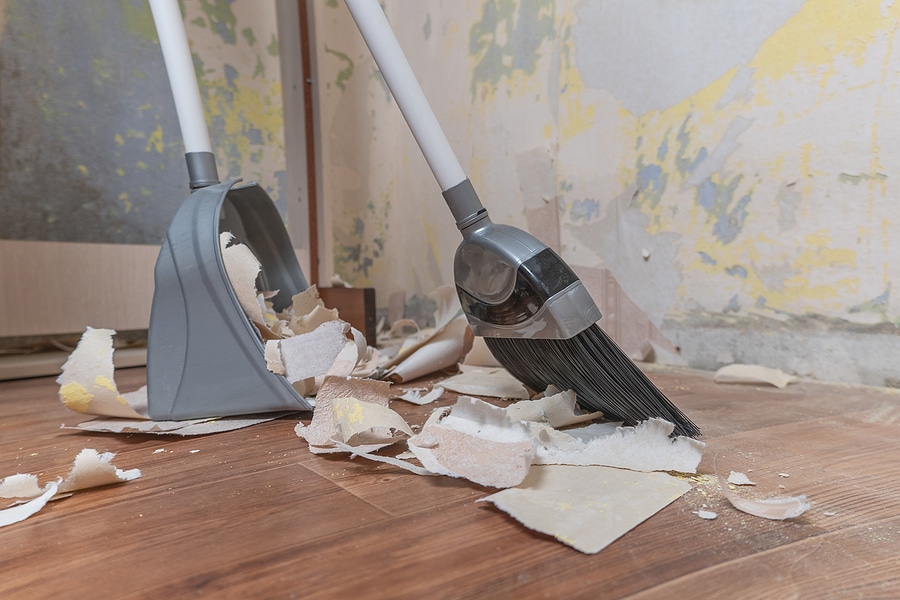Wear and Tear vs. Property Damage: What NYC Landlords Need to Know

A chief source of friction between landlords and tenants stems from disagreement over what constitutes normal wear and tear versus excessive damage to a rental property. Naturally, these disputes typically arise at the end of the landlord-tenant relationship, after the tenants vacate the premises and the landlord evaluates the property condition. Landlords can avoid many of these disagreements—and comply with New York City law—by maintaining open, transparent communication with tenants from the start of their residency.
Definitions: Wear and Tear vs. Property Damage
In terms of rental properties, wear and tear describes gradual deterioration from everyday use, aging, and exposure to the elements. The following examples fall under wear and tear:
- Scuff marks on walls
- Worn carpet
- Loose doorknobs
- Minor scratches or dents
- Faded paint or window treatments
- Discolored grout, loose tiles
- Light scratches on countertops
Property damage or tenant damage refers to damage that exceeds normal degradation, generally caused by tenant negligence, misuse or accidents. Examples of this excessive damage include the following:
- Broken windows, doors or fixtures
- Large holes or deep scratches in walls or floors
- Urine stains or chewed molding from pets
- Unauthorized apartment modifications
- Water damage caused by tenant negligence
In short, wear and tear refers to the bumps and scuffs that result from living in a space, using appliances, etc., even with regular maintenance. This minor damage would occur regardless of who was living in a unit and doesn’t affect the marketability of the apartment. On the other hand, excessive tenant damage—such as pervasive pet or cigarette smoke odors—could affect the landlord’s ability to rent the space to future tenants.
Move-In and Move-Out Inspections
To avoid confusion, landlords should conduct move-in and move-out inspections with tenants. New York state law requires landlords to offer an apartment inspection before the tenant moves in. This practice also sets expectations for both parties. More importantly, documenting move-in and move-out inspections will reduce the likelihood of later disputes.
- Move-in checklist. Use a standardized checklist that covers all areas of the property
. This tool ensures consistency and completeness. - Photographic evidence. Capture time-stamped photos or videos during the move-in and move-out inspections to provide clear evidence of the property’s condition.
- Tenant copies. Share copies of the inspection checklists and photographic evidence with tenants for transparency.
New York City Security Deposit Requirements
New York limits security deposits to one month’s rent, which can be applied toward excess damage, outstanding utilities or storage fees. In addition, state law imposes the following requirements on landlords at the end of the tenancy:
- Right to inspection. Notify tenants of their right to request (and attend) an inspection before moving out.
- Itemized repairs. Provide tenants with an itemized statement of any excessive damage, including cost of proposed repair or cleaning.
- Deposit refund. Return security deposits—minus funds for repairs documented in the itemized statement—within 14 days of tenant vacancy.
NYC Landlord Insurance Specialists Since 1976
Stu Cohen and his team at City Building Owners Insurance specialize in insuring brownstones, small apartment buildings, and mixed-use properties in New York City. Request a complimentary, no-obligation policy review to ensure you have the right policy and coverage for your unique situation. We can also recommend opportunities for you to lower your risk profile to qualify for better rates and coverage.
Put our risk management specialists to work for you and request a free landlord insurance review.

